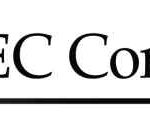March 2021 saw new car registrations increasing for the first time in the UK since the start of the COVID-19 pandemic, with almost 284,000 new vehicles on the roads. This is 29,000 more vehicles than for the same period in 2020, when sales fell by 44% at the start of the first lockdown. However, the Society of Motor Manufacturers and Traders (SMMT) warns that the latest registration numbers are 37% down on the ten-year March average, and it estimates that the shortfall in the first quarter of this year has already cost the industry around £1.8 billion.
Fluctuating demand
The shortfall in sales is caused by a mix of increased economic uncertainty and health concerns among consumers, coupled with the closure of dealer showrooms. However, a survey by Automotive Management found that 59% of franchised car dealers in the UK and 48% of independent dealers are confident that their turnover will grow, despite the issues caused by the pandemic.
Many middle-income consumers in secure jobs have saved money over the last year. With restrictions to foreign holidays this year and the likelihood of home improvements having been implemented during previous lockdowns, there could eventually be robust demand for cars among this group. In addition, consumers who have been working from home are expected to increasingly shift towards private vehicles when they do return to the office. According to McKinsey, 26% of consumers in the main European countries (including the UK) see access to a private vehicle as more important than it was before the pandemic.
However, in the McKinsey survey, economic concerns are the main reason for delaying a purchase for 55% of respondents. Even those planning to purchase a vehicle are likely to be less profitable for dealers. Consumers are increasingly looking for discounts and considering smaller cars from high-volume brands. People are also less likely to include advanced features such as driver assistance options in their purchase. And consumers who were intending to buy a new car may instead opt for a pre-owned vehicle.
Opportunities to drive sales
There are several ways in which retailers can mitigate the risks associated with declining demand and pressures on profitability:
- Improved lead management: Thorough follow-up of digital leads is an area that industry players tell us they would like to develop. Prioritisation can help a dealer’s sales team focus on the strongest leads; for instance, a lead who has used an online finance calculator is likely to have a relatively high purchase intent. Dashboards can be implemented to quickly identify the progress of each lead. And KPIs can be created to monitor each salesperson’s performance, such as conversion rates.
- Smart online incentives: Different consumers have different requirements, so microtargeting and offering the most appropriate incentives is important. Offers such as free servicing, interest-free financing or zero deposits should be visible without a prospective customer visiting a showroom.
- Used vehicles: Given that the used car market is likely to be less disrupted than the market for new cars, ensuring that a full set of relevant stock is visible digitally to the customer is important.
- Stock management: Analytics-based stock flow planning can help retailers reduce surplus inventory while ensuring that the most appropriate mix of models is available. Forecasting tools can be used to model the impact of lead activity and marketing campaigns, using machine learning and historical data.
- Greater focus on electric vehicles: The fast growth of electric vehicle sales is an opportunity for dealers to generate high-value sales. In Automotive Management’s Outlook Survey, 87% of dealer groups expected an increase in electric vehicle sales; 79% had introduced electric vehicle charging points. However, only 12% of independent dealers had installed charging points, despite 77% forecasting an increase in sales.
A focus on digitisation
The shift towards digitisation of the car selling process is likely to continue. According to McKinsey, car buyers have adopted a strong preference for an online sales process, particularly young and middle-aged purchasers. However, it is unlikely that the entire process will shift online. Research by Deloitte suggests that, globally, just one in four consumers are interested in a fully online sales process. This is because certain aspects of the process, such as test driving and vehicle trade-ins, are difficult to carry out online.
Nevertheless, dealers need to continue to build their digital retail infrastructure. According to a survey by automotive marketplace CarGurus, 76% of prospective car buyers would now prefer to use contactless buying tools, suggesting that buyers will respond positively to services such as:
- Private appointments for unaccompanied test drives
- Home delivery
- Limited-time money-back guarantees
- Online access to special offers and deals
- Chatbots or video calls to answer queries
- Finance arrangements conducted online
- Digital document signing
- Virtual trade-in estimates.
According to a US survey by Cox Automotive, independent dealers with these kind of digital retailing capabilities saw 73% of their customers completing parts of the car-buying process online, while independent dealers with more limited capabilities unsurprisingly saw just 17% of their customers doing the same.
In January 2021, Automotive Management’s Outlook Survey asked dealer groups in the UK which digital services they planned to use this year. 76% said end-to-end online retail, 82% live video vehicle tours and 74% home delivery. The independents slightly lagged behind, with 56% saying end-to-end online retail, 48% live video vehicle tours and 72% home delivery.
Looking to the future
Online purchasing will continue to be a bigger factor for the industry than it was prior to the COVID-19 pandemic. However, the majority of the population is likely to revert to a hybrid model, where research is caried out online, initial contact is online, but activities such as test drives are carried out in the physical world. In response to this, Tesla has opened a series of showrooms in the UK and is planning four more for the first part of 2021. Cazoo, which launched purely online, is opening retail sites across the UK.
Customers will expect to switch between the online and offline worlds during the purchase process, using each channel at different points in the process. Optimising both worlds will be the hallmark of a successful dealer operation.










